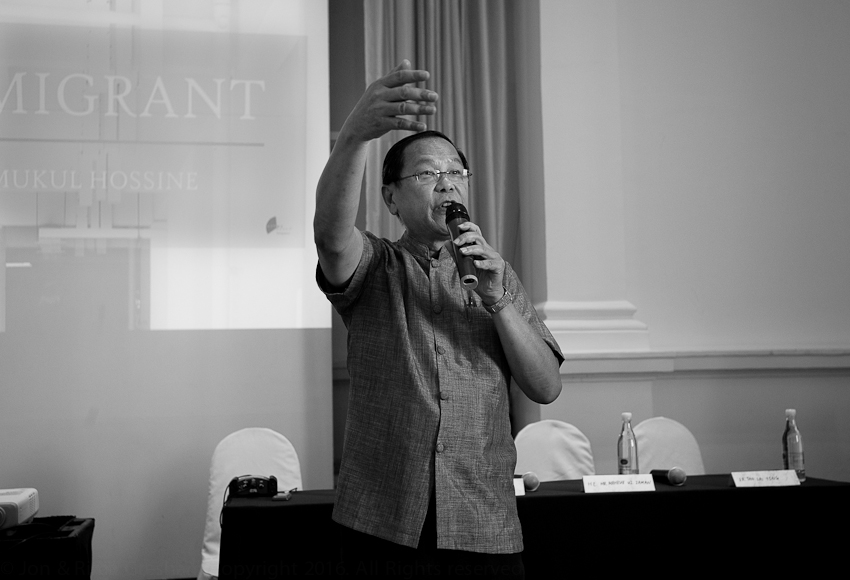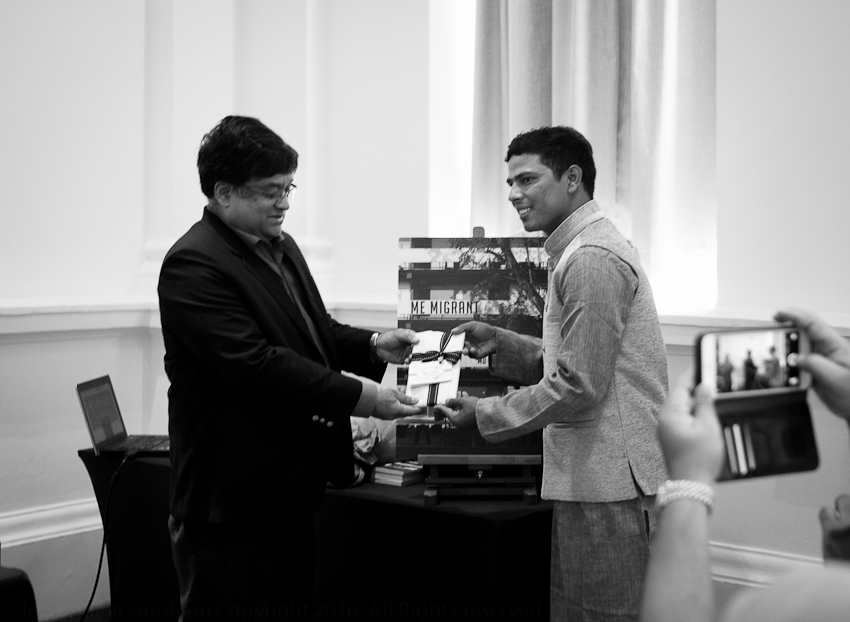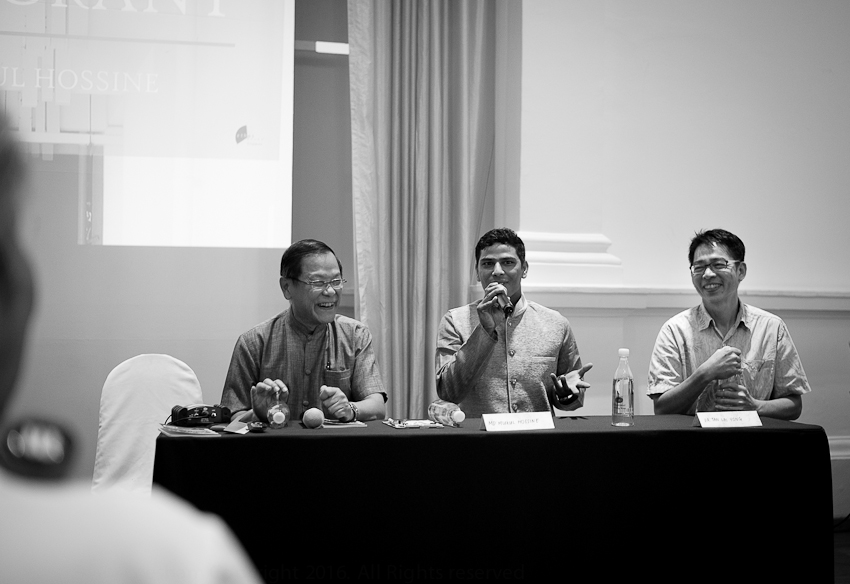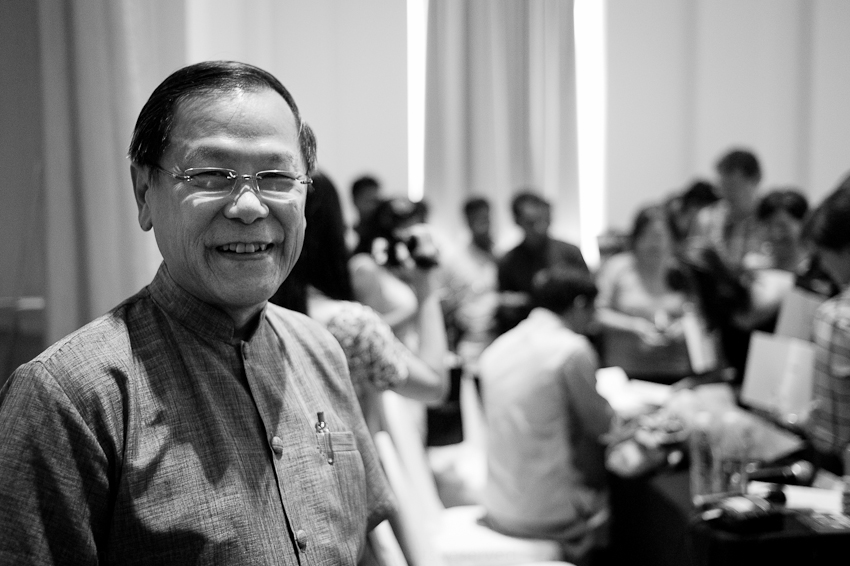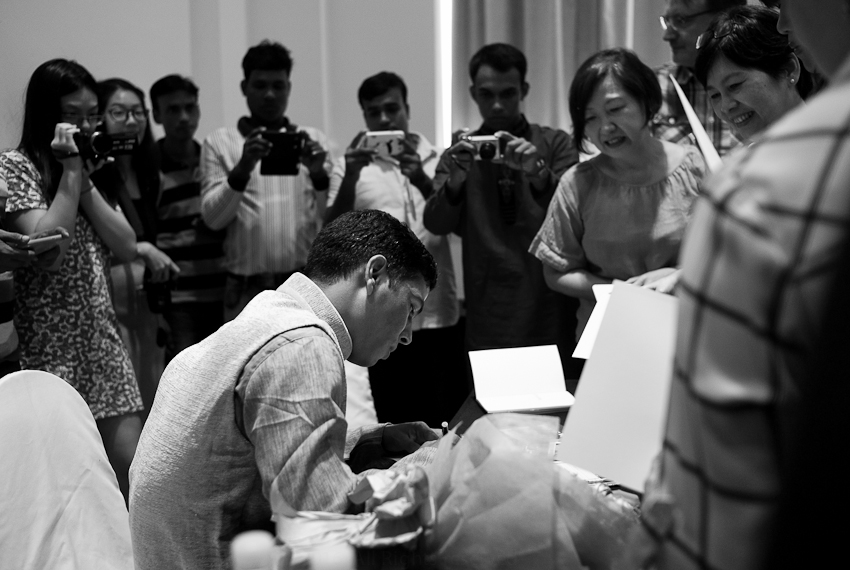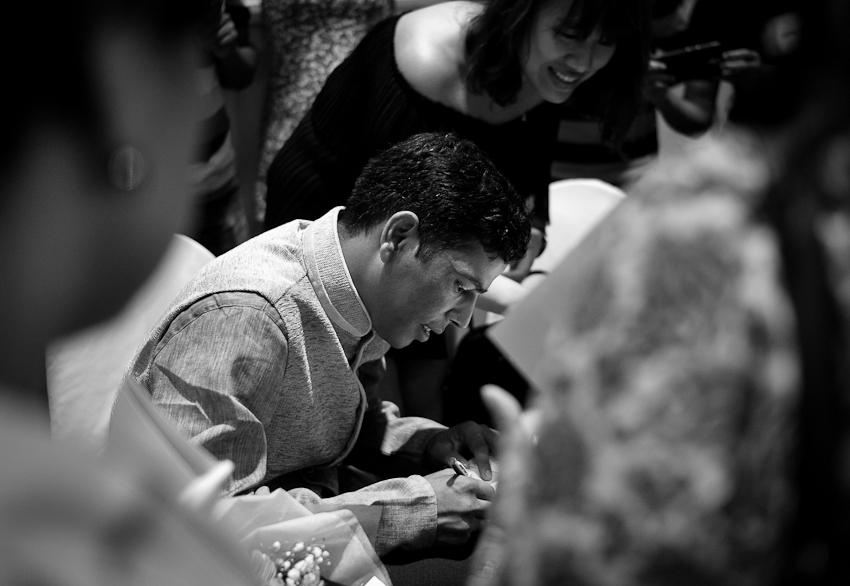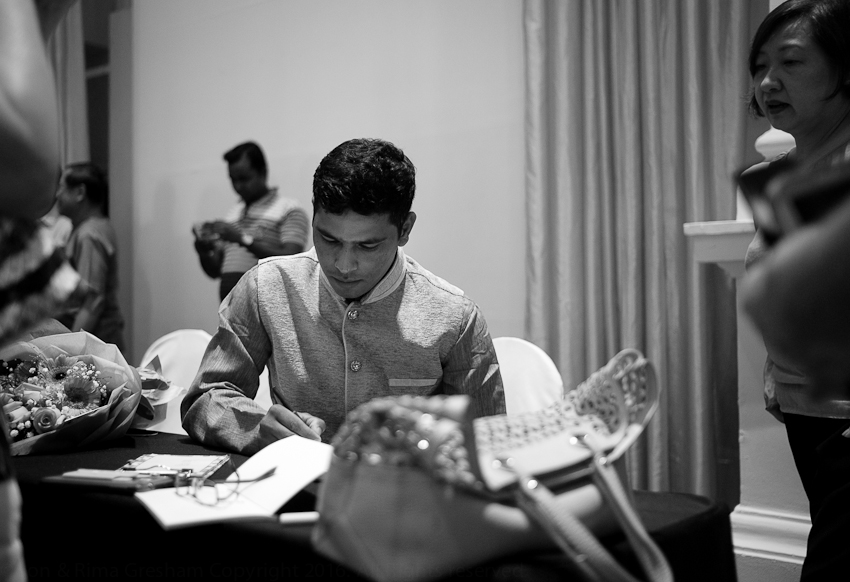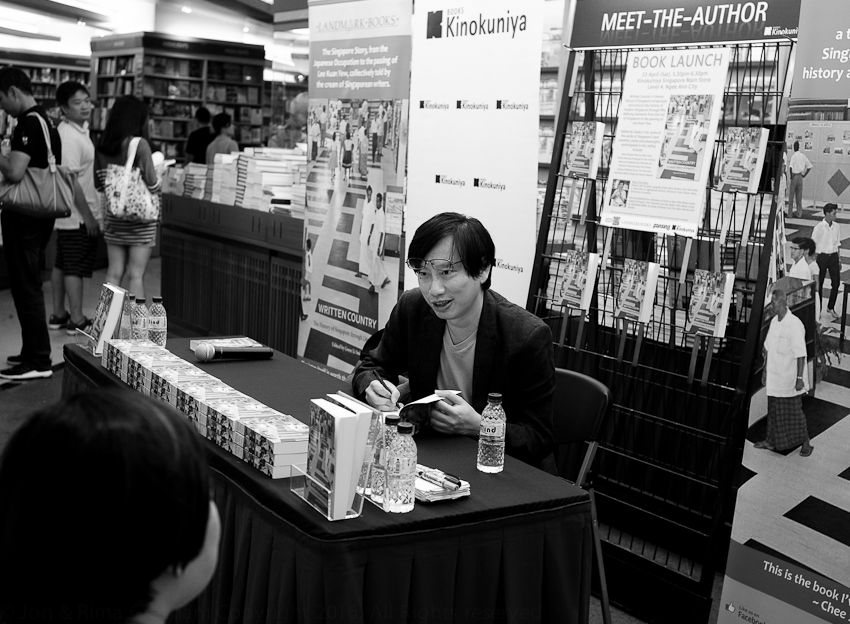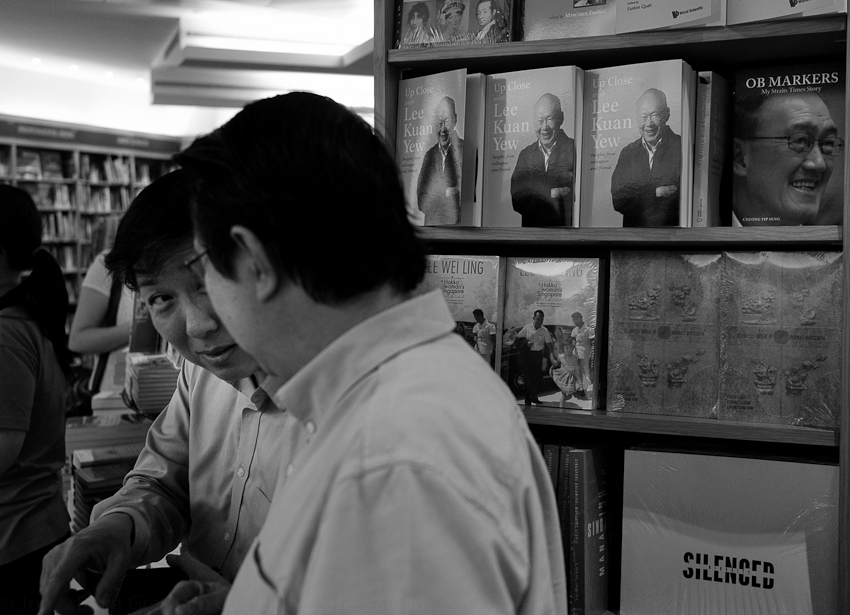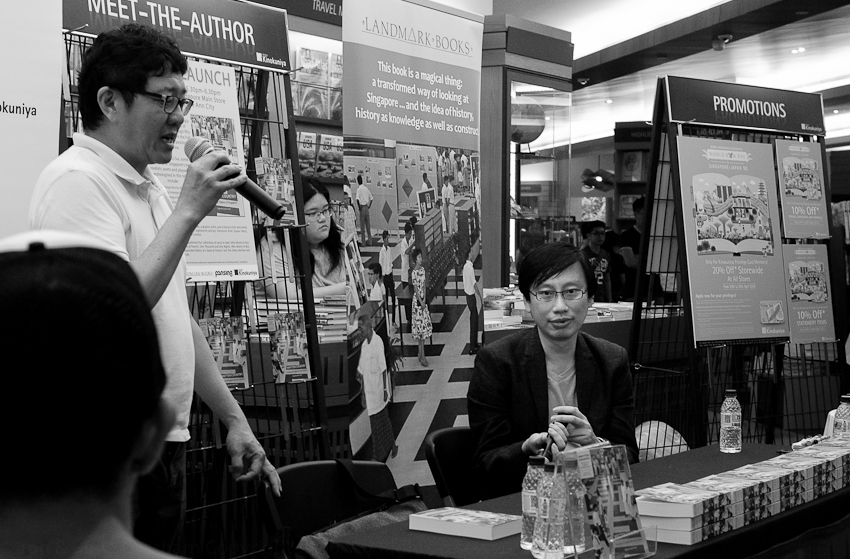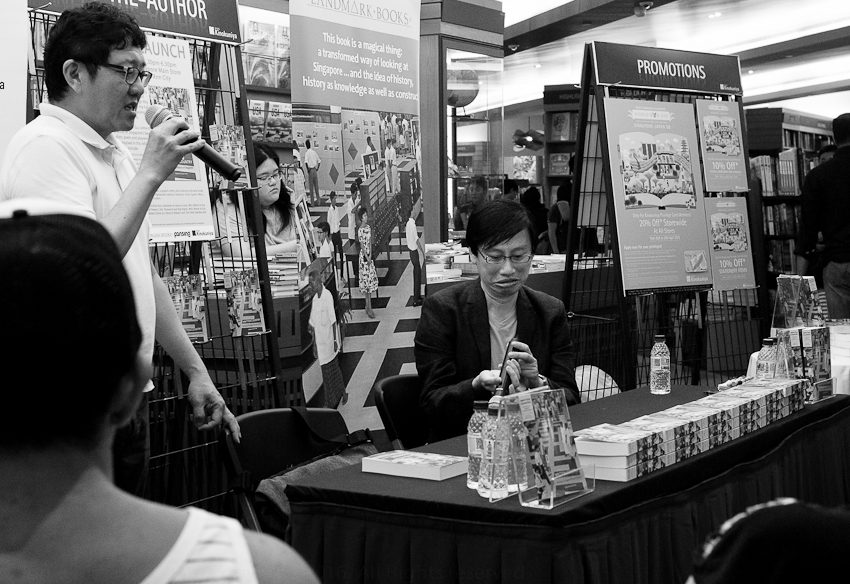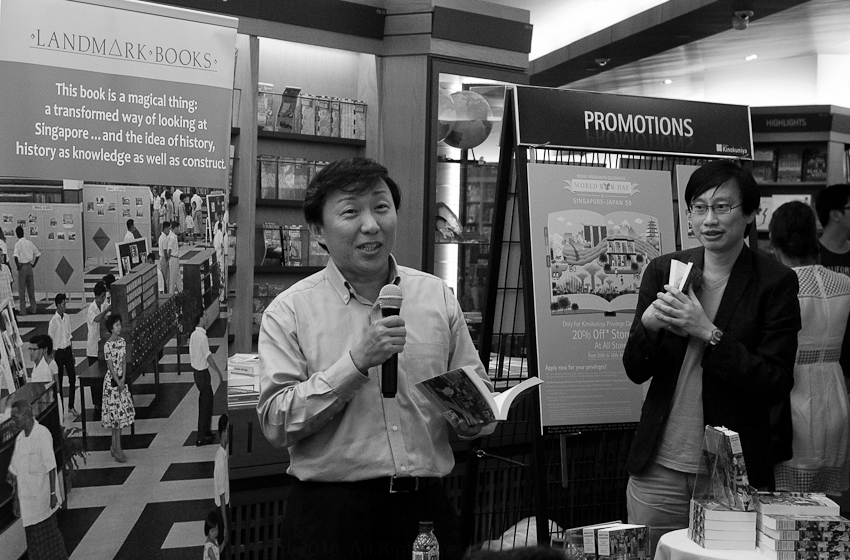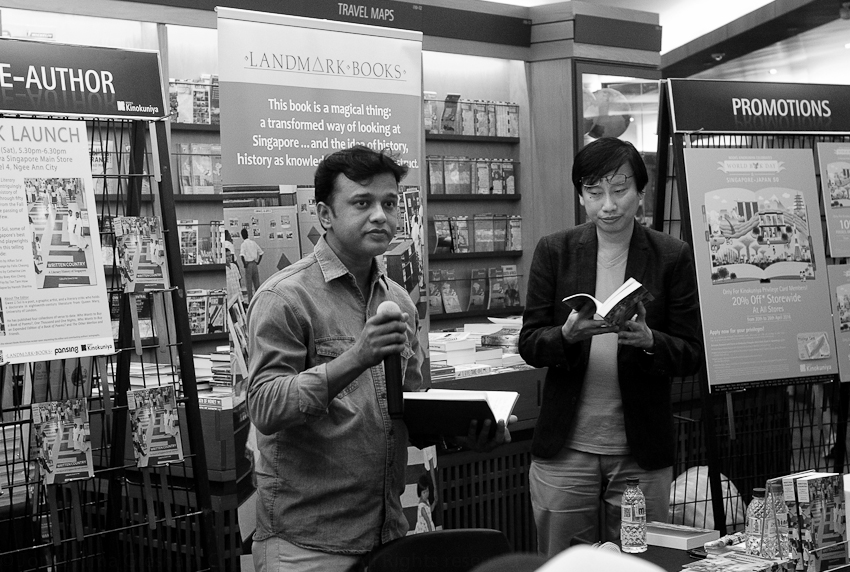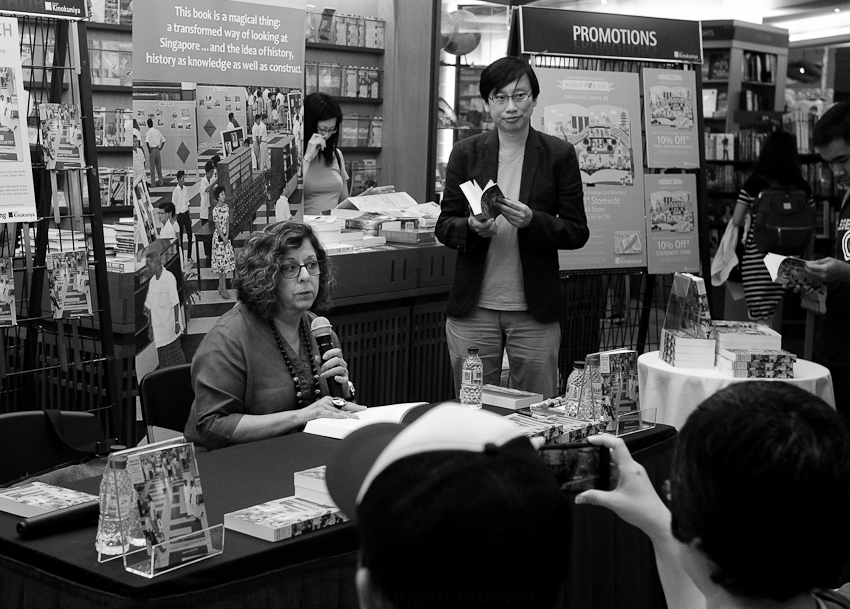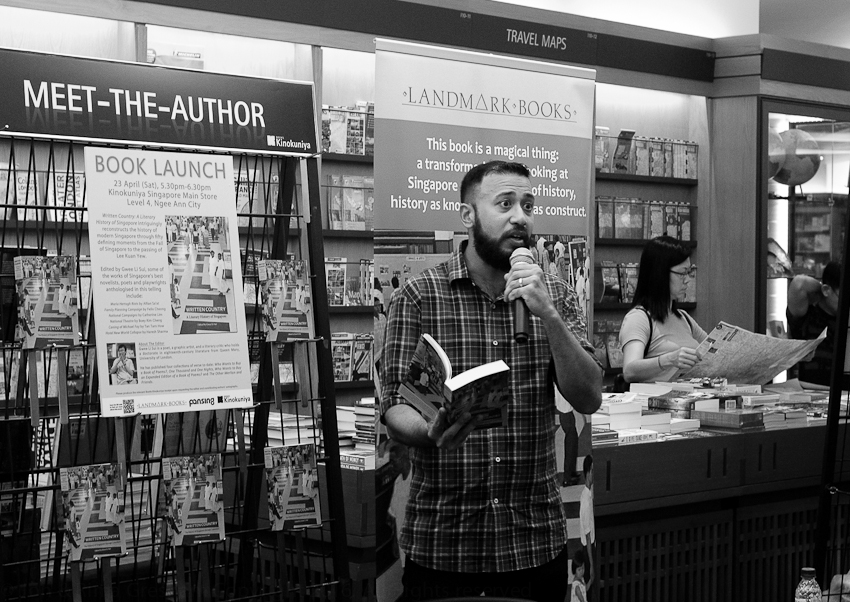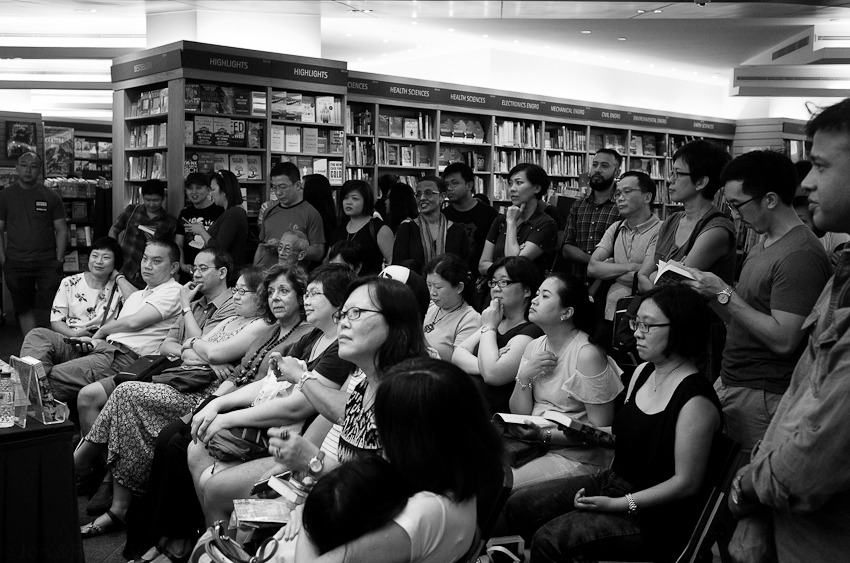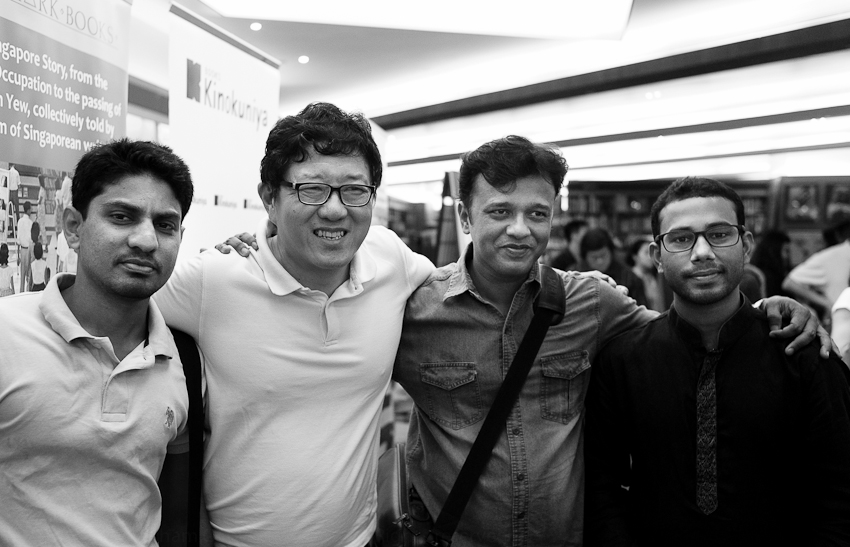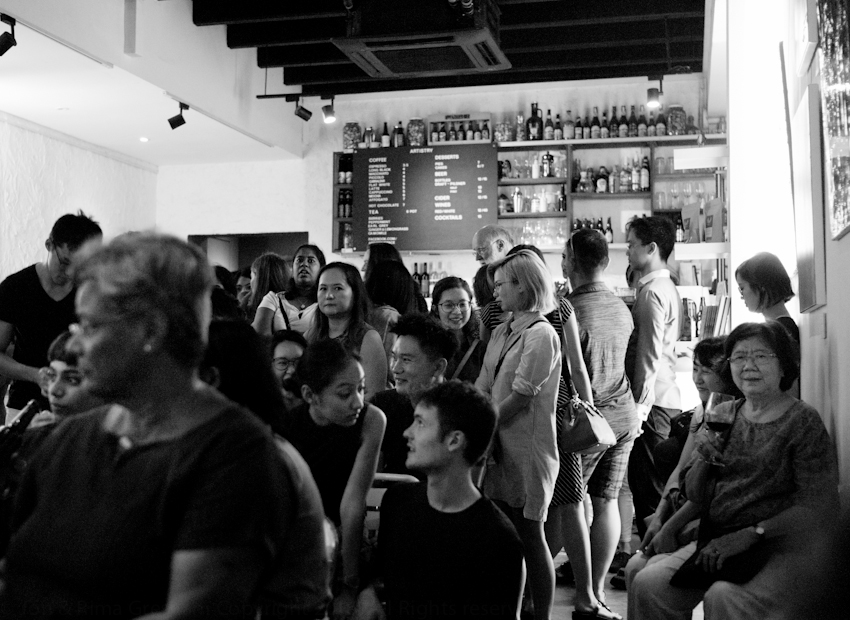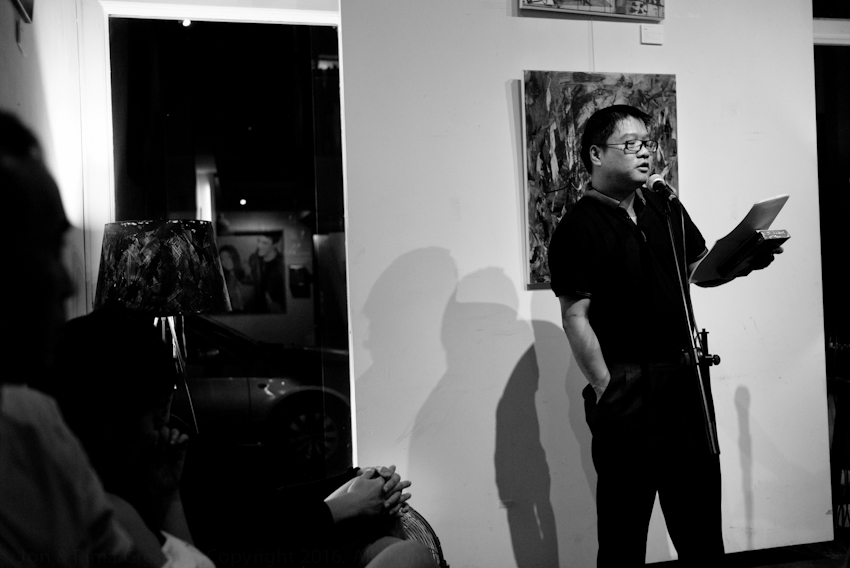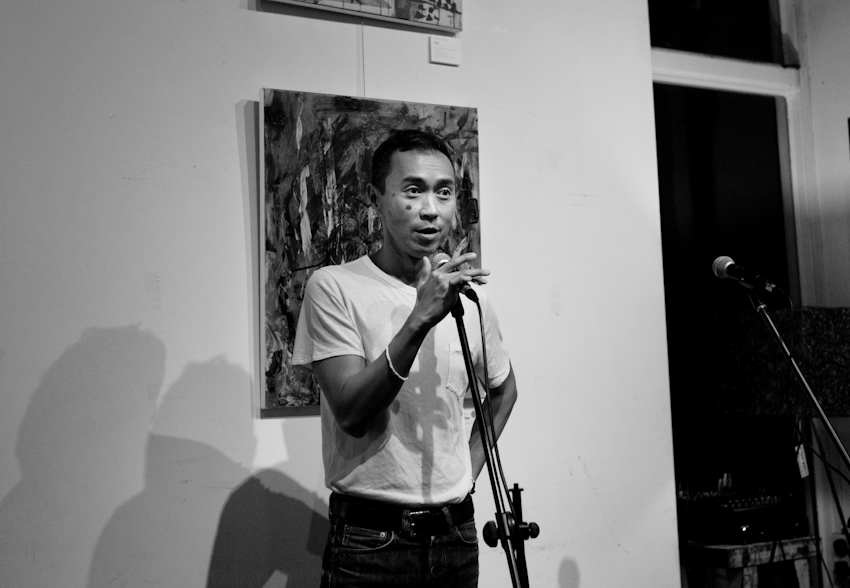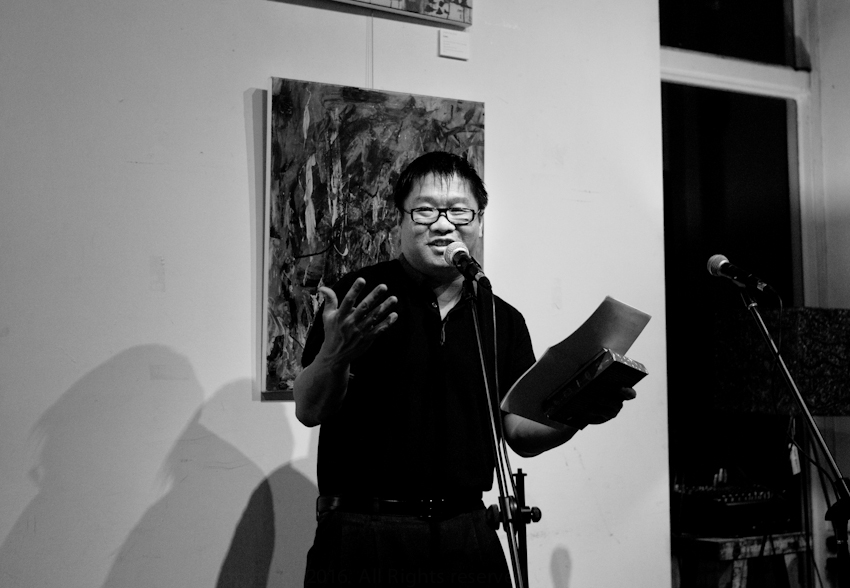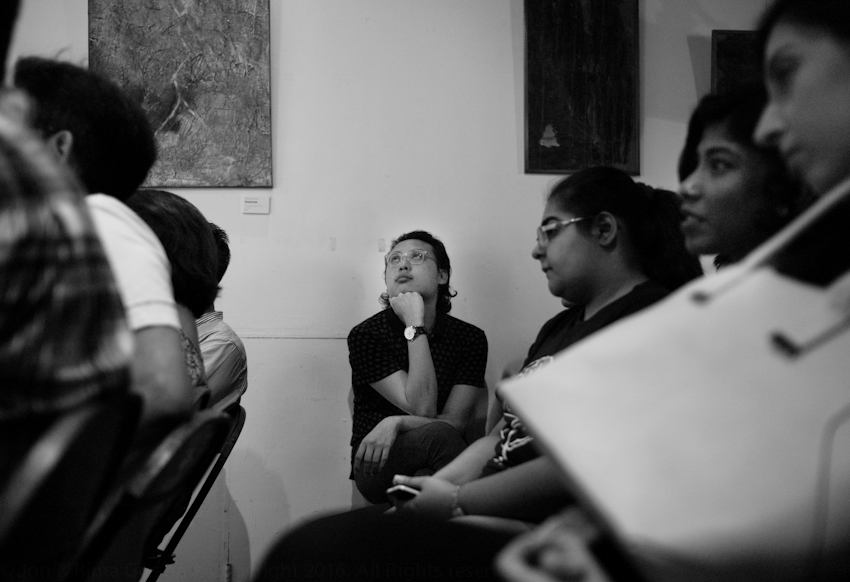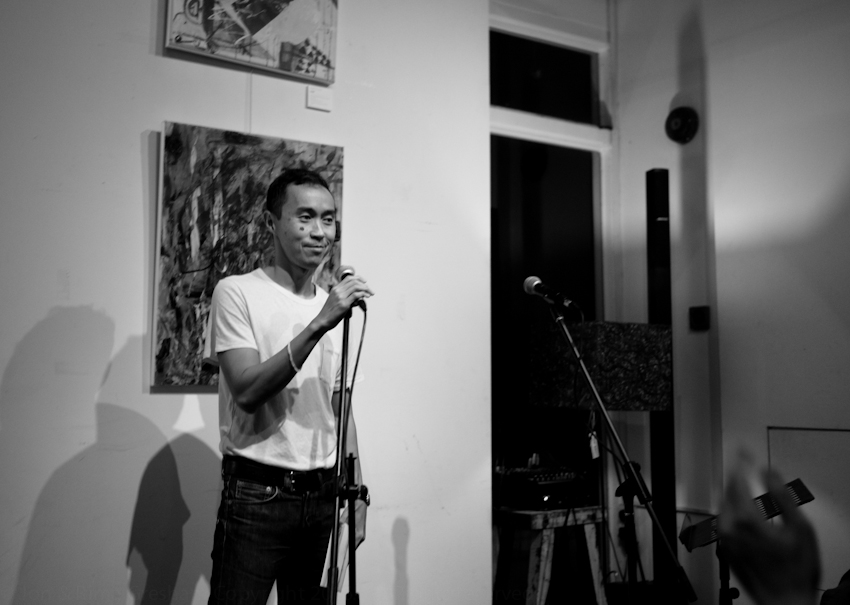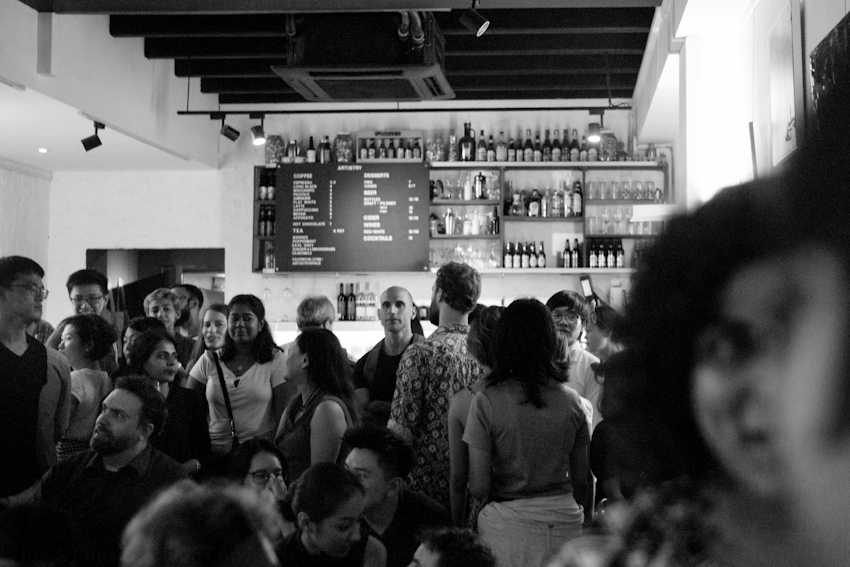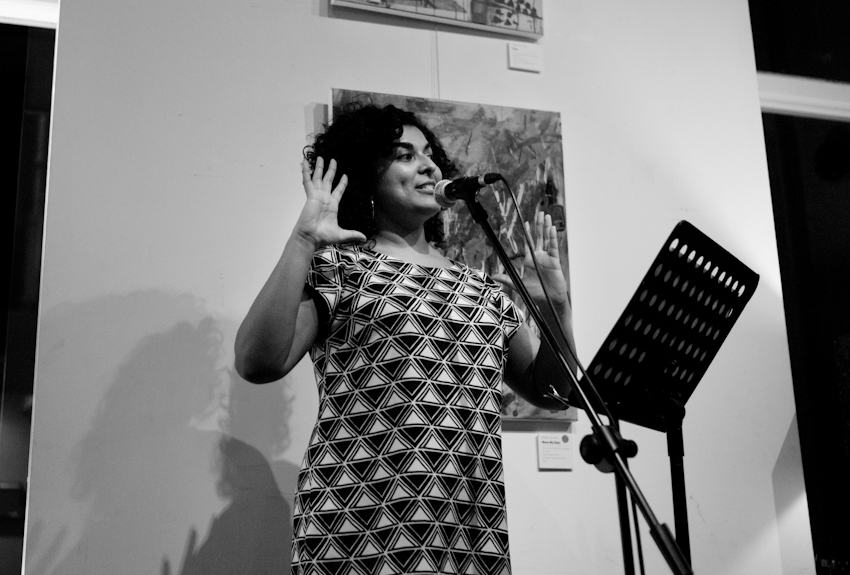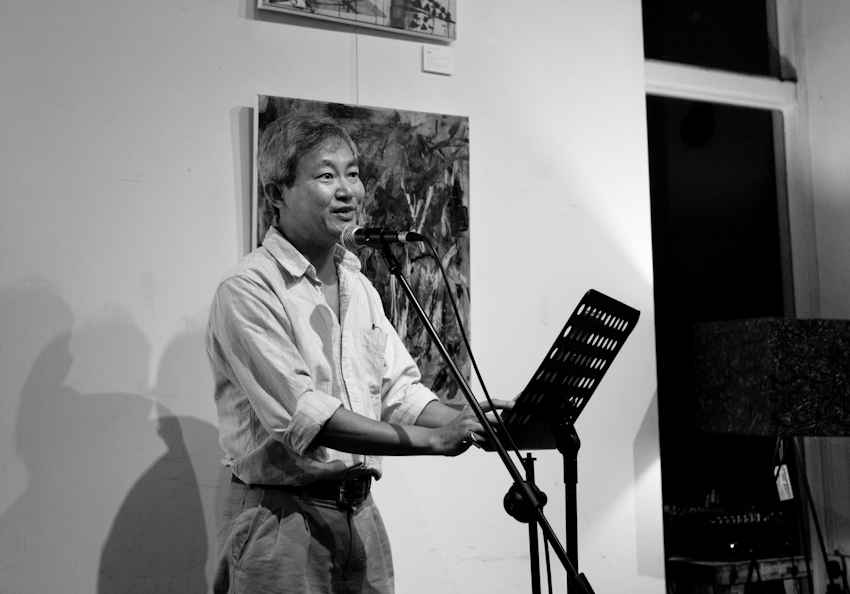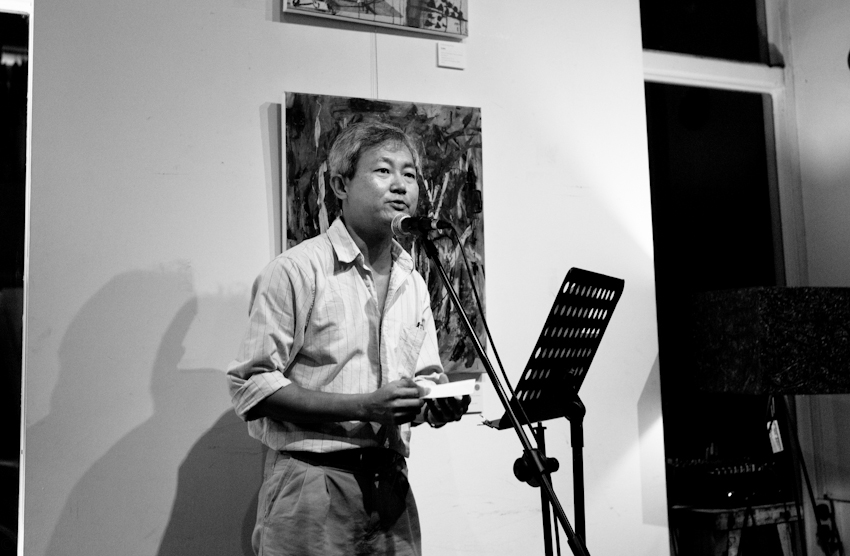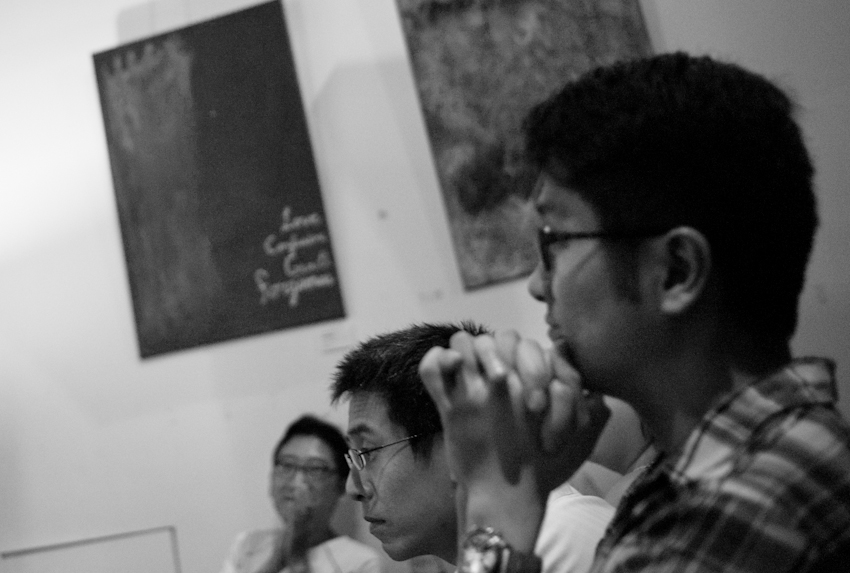On 1 May 2016, Mhd Mukul launched his debut english poetry collection, Me Migrant, at The Arts House. The book is published by Ethos Books, translated from Bangla with help from Fariha Imran and Farouk Ahammed and transcreated by Cyril Wong, with input on several poems from Marc Nair.
The High Commissioner of Bangladesh launched the book while many - over a hundred, by my reckoning - of Muhammed Mukul’s friends at Healthserve, in the migrant worker and literary communities were in attendance.
“Md Mukul Hossine was born in Patgram, Bangladesh, and has a Bachelor’s degree in Social Sciences. In 2008, he arrived in Singapore and has been working in its construction sector. Mukul writes poems, novels, and short stories. He enjoys composing poetry to remember his mother back home. His novel, Buker Simanaye Sukh (Happiness at Heart’s Edge) and his poetry collection Apurna Vasana (Unfulfilled Desire) have been published in Bangladesh. His other works have also appeared in anthologies. Mukul has spent many long nights writing poetry. His favourite poet is Rabindranath Tagore.” - Ethos Books
Md Mukul and his book are currently receiving a lot of attention in the Singapore media. This focus is a welcome change from the othering and simplistic political dialogue surrounding migrant workers. The media gaze and ‘celebrity’ opportunities should not sanitise, absolve and/or distract from the need to recognise:
- Md Mukul is not just one thing. He is a writer, a worker, a friend with a warm smile, a son, a muslim, a degree holder etc. Let's celebrate the multiple, complex narratives and routes that make up each human being rather than identity politics that privilege a single tribe & punch down on others
- the poetry is pretty good
- the heartfelt longing for his mother is something we all share - but most of us are privileged enough not to have to sacrifice so much to support our families
- there is a need to have a deeper, genuine conversation about the role of migrant workers in Singapore that goes beyond sentiment, recognises their significant, ‘white washed’ contribution to national myths and their status as an underclass. Such a conversation should consider whether it’s acceptable to preserve such an underclass or should there be a road map for reform so migrant workers have the right to change employers, choose their own medical care, have their days off respected, have proper accommodation and food etc
- a society built solely on pragmatic utilitarianism, where everyone is seen as an economic input, will find it difficult, especially during worsening economic times, to build unity and community unless opportunities and a future are provided for the less powerful and privileged
Don't just buy Md Mukul's book, please support those on the ground providing much needed help to, and recommendations benefitting, migrant workers such as Healthserve, TWC2 & HOME.
Images from other SGLit Migrant Worker Poetry events
Images from the HOME Showtime Pageant

